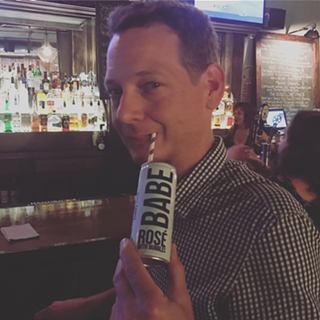For more than 30 years, the Washington, D.C. vocal ensemble Sweet Honey in the Rock has moved audiences worldwide. On the strength of virtuosic singing and compositional skills, coupled with a command of and passion for a musical heritage that stretches from ancient African tradition up through contemporary styles, the a cappella group has forged a formidable legacy. The name is perhaps the most universally recognizable in several of the choral genres with which it's often vaguely associated, from gospel to world beat.
Many more folks know the name, however, than know the sound, or have actually experienced Sweet Honey's unique amalgam of accomplished eclectica and empowering message in concert. This is largely because people let their eyes, rather than their ears, dictate assumptions regarding the group.
"There isn't anything that you can do about people's perception of you. We do not try to identify ourselves as a women's group, or an African-American group," says Sweet Honey member Ysaye Maria Barnwell. "It's very clear that we're African-American, and that we're women."
Though fully aware that Sweet Honey may be filed away by some of the uninitiated as a niche phenomenon, Barnwell — a composer and occasional actor who holds several degrees, including a doctorate in cranio-facial studies — hastens to add that many new fans immediately recognize its wider resonance.
"Sometimes people come up and say 'you make us very proud to be African-American,' sometimes they say 'you make us very proud to be women.' Sometimes both," she says. "But they also say a particular song really helped them when they were going through the birth of [their] child, or were grieving the loss of a partner, or where feeling discouraged about the work they were trying to do politically. Those comments come more often than the ones that identify people with us in a racial or gender-specific way."
Dr. Barnwell can safely be called an expert on the fans drawn to Sweet Honey in the Rock for various reasons, be they musical, philosophical or cultural. When Sweet Honey founder and social activist Dr. Bernice Johnson Reagon formally retired from the group earlier this month, at the end of its 30th year, Dr. Barnwell, who joined in '79, became Sweet Honey's most senior full-time member.
"I had no intention of being a professional musician, although I'd studied music extensively. I was doing other things — I was actually on the faculty of a dental school. I happened on one Sunday morning to be singing in church, and interpreting the service [in sign language]," Dr. Barnwell remembers. "I actually sang and signed a song for myself. Bernice Reagon happened to come to the service that morning, and came up afterward and asked me to audition.
I thought, surely she's talking to somebody else, but what did I have to lose? I did the month-long audition process, and at the end of that got into the group."
In the years since, Dr. Barnwell has had more than enough interaction with the group's followers to convince her that, despite the members' more conspicuous commonalities and musical influences, there really isn't a "typical" Sweet Honey in the Rock fan.
"Our audiences are very diverse, and, of course, the degree to which it is diverse depends on where we are. We have about three, sometimes four generations of people coming to our shows. Sometimes they're all from one family," she says. "And it's not just female, and our audience is in many places very racially diverse. People with all kinds of musical tastes and attention for different issues come. It's really hard to say what the typical audience member is. I don't know that we could do that."
Dr. Barnwell also has seen a penchant for diversity within Sweet Honey itself, not only in terms of its fluctuating membership and size — though originally founded as a quartet, Sweet Honey is currently a seven-piece featuring a full-time sign-language interpreter — but also with regard to the music. Much of the music on the group's 15-odd albums is firmly rooted in venerable African-American traditions, from chants and slave songs to gospel and jazz. Various contemporary sounds creep in and out of the mix, though, as certain things catch the attention and respect of the women, several of whom are composers as well as vocalists. (Dr. Barnwell, for instance, has been commissioned to write several outside works during her tenure in Sweet Honey.)
Dr. Barnwell considers this exploration of the musical spectrum far more a reflection of Sweet Honey's tastes, and love of song in general, than any conscious attempt to draw new fans or compete with any of commercial entertainment's many mercurial trends.
"We live in the world, and we're very aware of musical changes going on in the world. Some of them appeal to us as composers, and we try to incorporate them into what we write. I don't think we do it to be trendy or popular," she says. "At the same time, I feel like we're preserving traditional music while using contemporary music. We run the gamut in that respect."
Unlike the group, its music or its fans, the overall intention of Sweet Honey in the Rock can arguably be boiled down quite nicely: to uplift, to empower, to lend strength and positivity to the lives of the listeners while entertaining them, and maybe in the process expose them to old musical traditions in a new way.
"I hope they will appreciate having heard a wide variety of excellent African-American music … and I hope they will feel affirmed as individuals and as a community," says Dr. Barnwell when asked what she'd like people to take away from a Sweet Honey experience. "That they feel affirmed as a living, feeling entity in this world, that someone recognizes they exist, and they see themselves in something we've sung about.
"That's what gives people the courage to go on, so that's what I hope they get."
Contact Music Critic Scott Harrell at 813-248-8888, ext. 109, or by e-mail at [email protected].
















